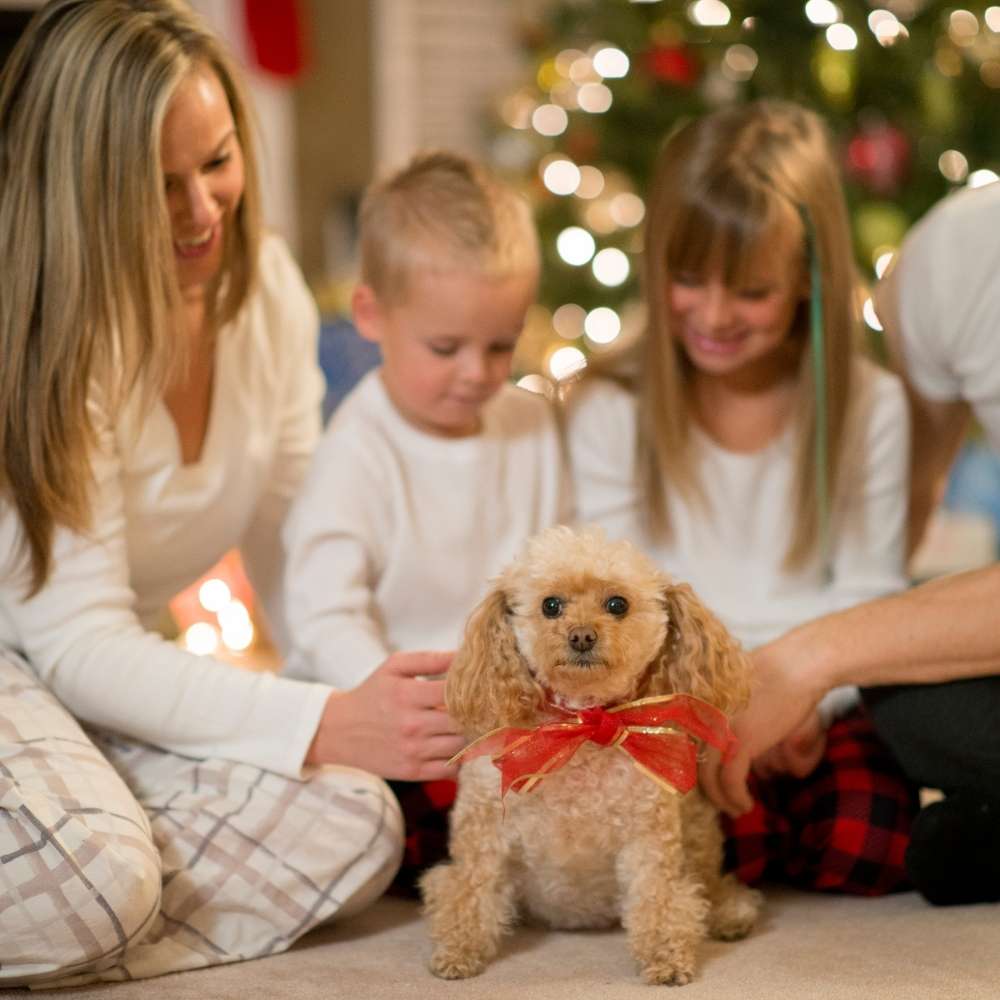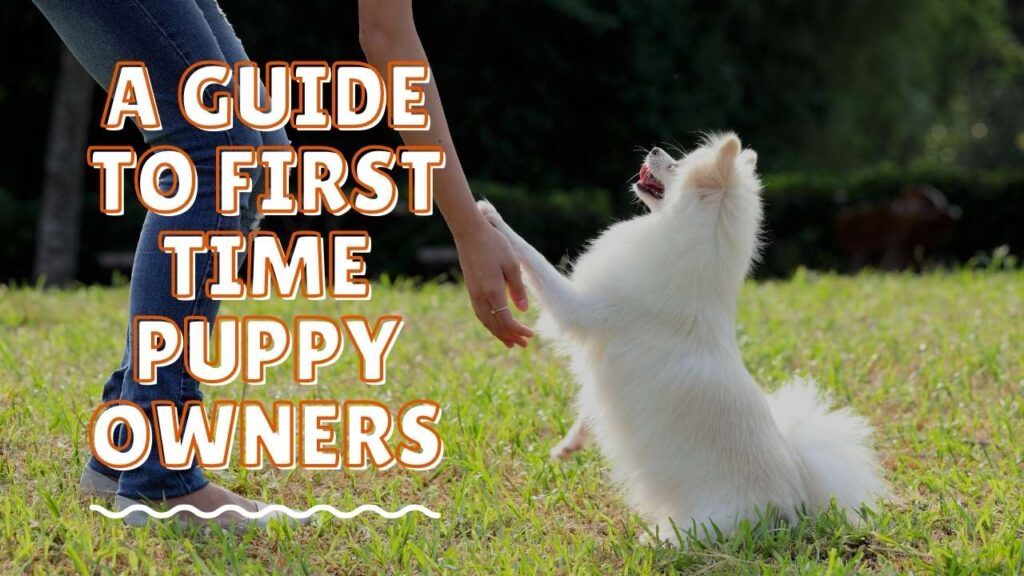Physical Address
304 North Cardinal St.
Dorchester Center, MA 02124

Table of Contents
Read these Tips if You’re Considering Adopting a Dog
Guide to Puppy Training

Congratulations on finally getting a new puppy for the first time!
Your life is about to change now that you already have a new puppy at home. Having a puppy can be exciting and fun, just as it can be challenging and frustrating sometimes. Raising a puppy requires a long-term commitment and a lot of effort and patience. Still, the fulfillment and joy your puppy can bring could be priceless.
Before jumping right into the guide to first-time puppy owners, let’s first run through some of the most important factors that need to be considered when getting a new puppy that most first-time puppy owners fail to make.
First, knowing what breed of puppy to get is equally important as deciding whether you are really physically, mentally, and emotionally ready for a new puppy or not. Remember, getting a puppy is a long-term commitment and would require a lot of effort.
The bigger the breed type, the more effort you need to exert and the higher the cost of maintenance will be. On top of that, knowing very well whether your place and neighborhood are conducive for a particular type of puppy breed to live at should also be considered.
Knowing where to source your puppy is the next step. You may either use a breeder, buy privately, or adopt from shelters.
When you adopt from shelters, you are not only giving a puppy a new chance and hope of a better life but also freeing up space for a new puppy in the shelter.
And now we’ve come down to the actual guide for the first-time puppy owners. Now you found your puppy and ready to take it back home, here’s a list of essential things you can do.


Just exactly like bringing a new baby home from the hospital, taking a puppy home for the first time needs almost the same amount of preparation. Your home is your puppy’s playground, so it is important to puppy-proof your entire home, or at least, the places where your puppy will most certainly have access.
Provide your new puppy its own space and a bed. Keep the wires and cables away from your puppy’s reach. Ensure your puppy doesn’t have access to rooms and places where its pee or poop may cause damage.


It is essential to register your puppy to a trusted veterinarian that you quickly have access to. Make sure to seek one with a good reputation. Visit him/her regularly and schedule your puppy’s shots and vaccines in advance.


Of course, preparing all the necessary supplies for your new puppy is a must! After all, it’s exactly like having a newborn baby at home, just the one that comes with fur.

Your puppy must have its own space at your home where he or she can lounge and feel comfortable. Dog beds and blankets are definitely a must-have to ensure your dog gets to sleep and rest well and not just lying on the cold floor. You certainly don’t want that for your new baby, do you?
Preferably get the stainless bowls and water containers. They last longer because it’s chew proof.
Paper tissues, disinfectant wipes, etc.
You can read more about proper grooming techniques and tools you can rely on Amazon here: Best 10 Tips on Cleaning and Grooming your Dog’s Hair
These are really essential in taking care of your puppy’s mental health, especially when he/she doesn’t have any siblings.
You might want to check these toys to help your puppy on teething: Puppy Teething Tips 2021: Symptoms and Survival
It pays to always ask a professional for recommendations for the best dog food your puppy can take.
Check the best dog food of 2021! The Best Dog Food Brands of 2021 or perhaps you wanna cook for your puppy’s food? Check our Youtube channel for easy and healthy homemade dog food recipes!
As fur parents, we definitely always think about how we can spoil our puppies. Treats are an excellent way to start. Keep lots of it at home, or you can DIY some, check these recipes: Dog Treats Recipes


Proper puppy training is vital to teach your puppies good manners and proper behavior. It will also benefit you well in the long run as a puppy owner if you make sure you get to train your puppies while they are still young and at a trainable age.
Of course, there is no perfect guideline on how to train your puppies. But teaching them discipline would make a lot of difference. You can use reward-based training methods to give your puppies the idea that they can be rewarded for good behavior.
Following are a few steps you can use as a guide to proper puppy training (which involves a lot of treats in between).
This will only trigger aggression between them. Puppies are naturally playful. Making sure they have ample space where they can freely run at. This will help them relax and be free from stress.
Training your dogs to eat at a specific time of the day at one particular spot in the house would help them a lot, especially when maintaining a proper diet and staying healthy.
This will train their digestive system and create a memory but also helps to keep your puppy’s appetite.
To avoid getting hassled, make sure you potty-train your puppies well. You can start but set up a specific area in your house to allow them to pee and poop.
Make sure that when they start acting like they are about to pee or poop, you carry and put them to that exact same spot so that they would get used to it. Eventually, they will get more familiar with the smell.
They would be able to tell by themselves where that exact same spot they’re allowed to pee/poop. Of course, proper hygiene and maintenance should be practiced to prevent your puppies from getting sick.
Sometimes, our puppies may get too loud to the point that our neighbors may get disturbed. Teaching them to stay quiet or refrain from barking too much is probably one of the hardest things to introduce to your puppy, as it is part of their natural way of living and their defense mechanism.
Usually, you can start by making sure your puppies are well-engaged with people. The more familiar they get with humans, the less they react when they see unfamiliar people around them.
Taking longer walks at the park, allowing them to engage with other dogs, and playing with them could definitely help train them not to bark too much.
Excessive puppy barking? Here’s what to do: Excessive Barking: How to Stop Your Dog
Literally every fur parent’s struggle. But it doesn’t always have to end that way. You can train your puppy not to chew on stuff like furniture, cable, etc., at home by giving them suitable toys to chew on. A teething puppy is a chewing puppy.
Copyright © 2021 DogSploot.com
Kathlene Han is a writer, a musician, and a full-time dog mom. She often writes about things she’s most passionate about like relationships, adventures, being a fur parent, and is an advocate of mental health awareness.
Comments are closed.
Loving the info on this website, you have done outstanding job on the articles.